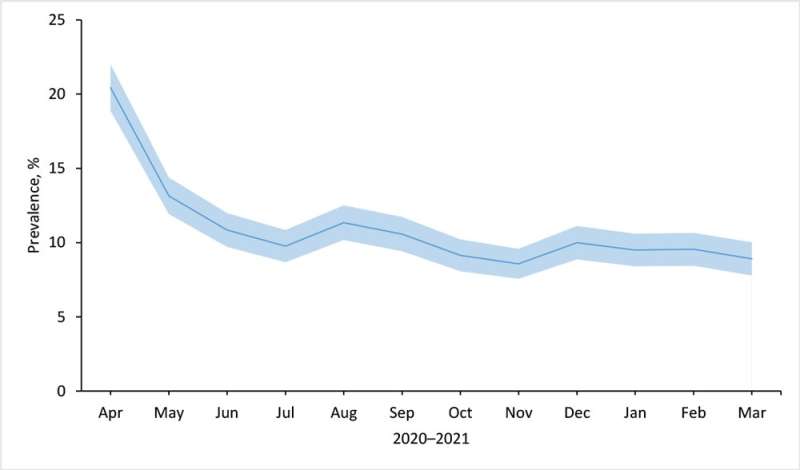Prevalence of any food insecurity among respondents (N = 7,944) to the Understanding America Study, Understanding Coronavirus in America tracking survey, April 2020 through March 2021. Shading indicates 95% CIs. Credit: Preventing Chronic Disease (2023). DOI: 10.5888/pcd20.220212
Food insecurity is a social determinant of health that contributes to the burden of chronic diseases and poor mental health and disproportionately affects groups with socioeconomic disadvantage.
In a nationally representative study published in Preventing Chronic Disease, researchers identified longitudinal patterns in the development, resolution or persistence of food insecurity during the first year of the COVID-19 pandemic.
Jin Kim-Mozeleski, assistant professor in the Department of Population and Quantitative Health Sciences at the School of Medicine, was lead author on the research.
The researchers found food insecurity was highly variable across the U.S. population, with one-third experiencing some form of food insecurity risk. These findings have implications for identifying population groups who are at increased risk of food insecurity and related health disparities beyond the first year of the pandemic.
More information: Jin E. Kim-Mozeleski et al, Food Insecurity Trajectories in the US During the First Year of the COVID-19 Pandemic, Preventing Chronic Disease (2023). DOI: 10.5888/pcd20.220212
Provided by Case Western Reserve University
























